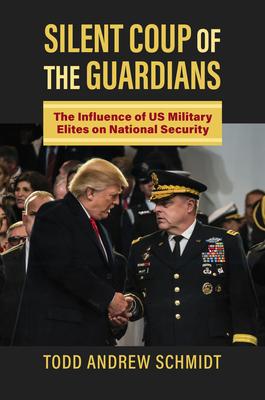Growing political radicalization and polarization in American government has created a scarcity of civilian leadership, knowledge, expertise, and power. Political rivals and adversaries, too busy combating each other, have abandoned the helm of the ship of state, setting reason, compromise, intellectual curiosity, and effective governing adrift. A faction of exceptionally capable and influential guardians--America's military elites--increasingly fill roles in civil society and government intended for competent, democratically elected or political appointed civilian leadership accountable to the American electorate.
Todd Schmidt demonstrates that US military elites play an exceptionally powerful role due to their extraordinary influence over policy process, outcome, and implementation. Through personal interviews with high-ranking national security experts across six presidential administrations, Schmidt concludes that nuanced relationships between military elites, the president, and Congress; decision-making in national security and foreign policy; and the balance of power in civil-military relations suggest a potential trend of praetorian behavior among military elites. A silent coup of the guardians has occurred, and professionals and citizens need to ask what should be done to rebalance US civil-military relations.
